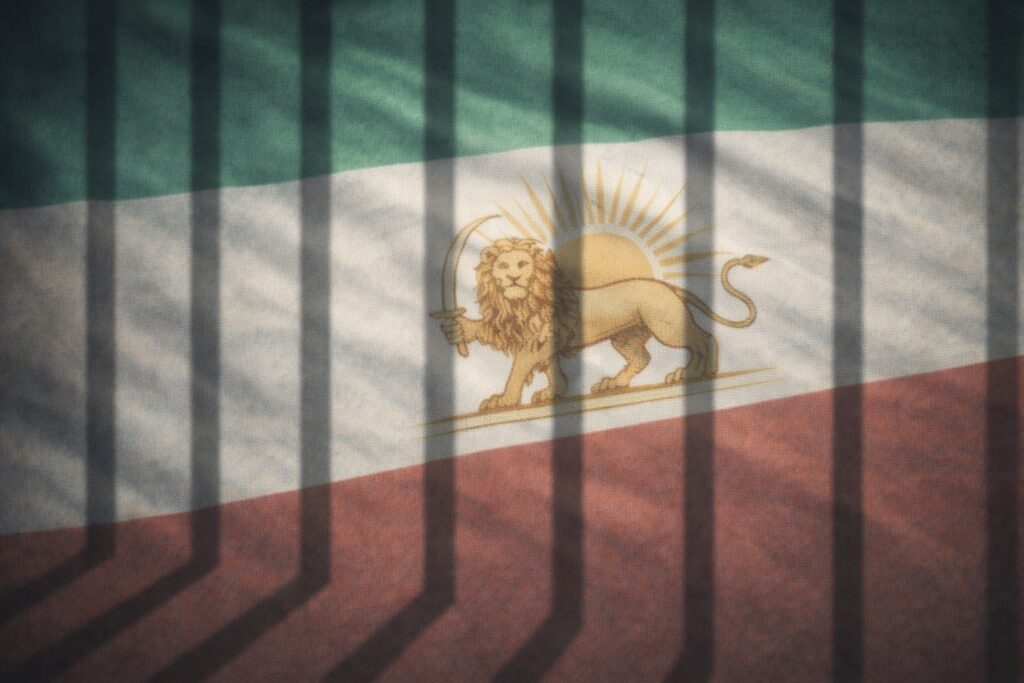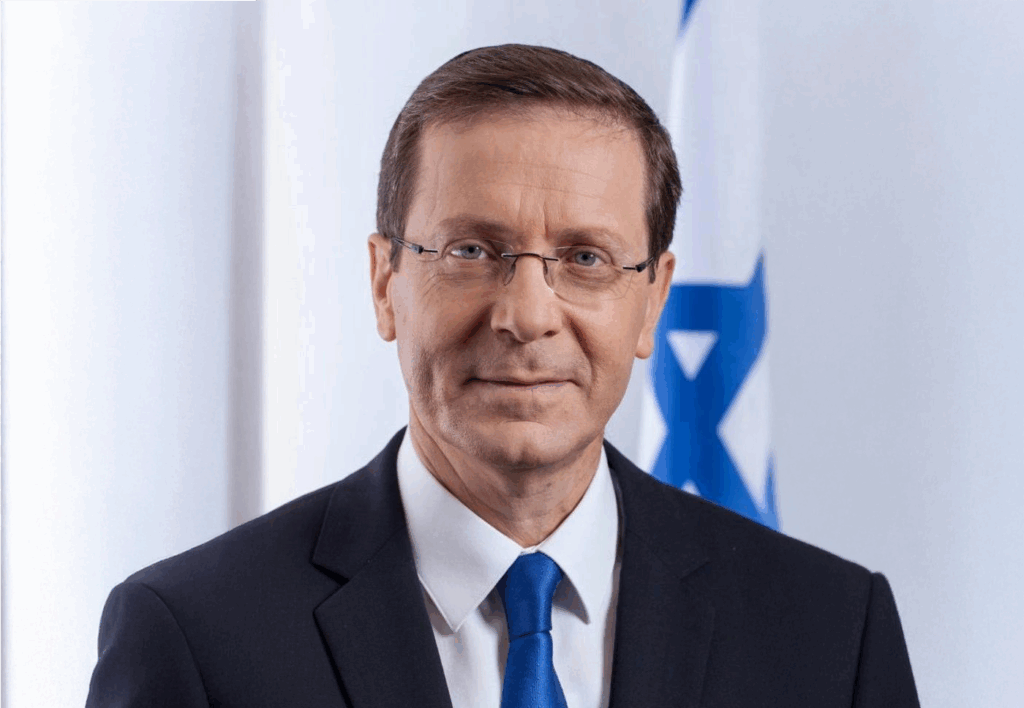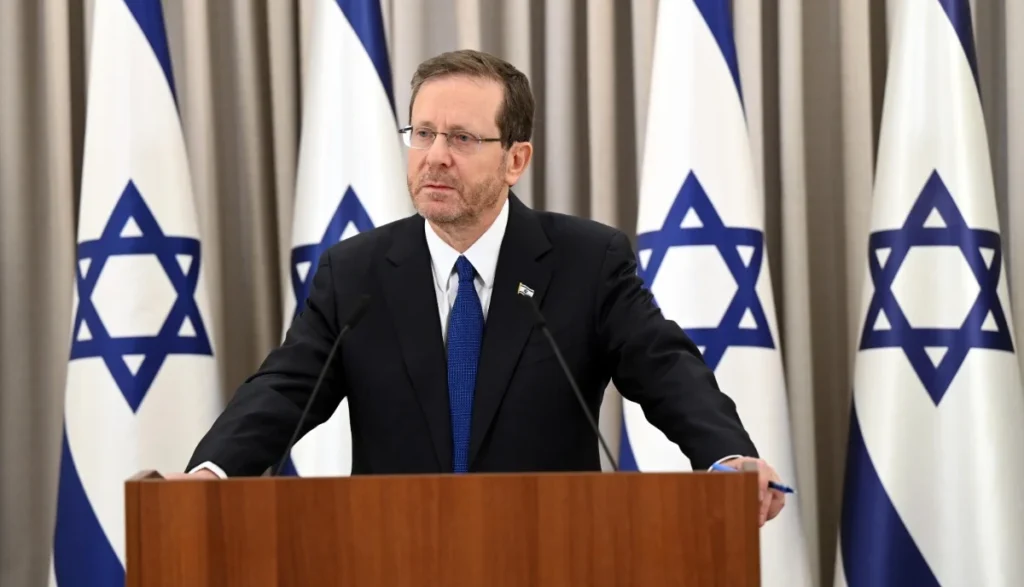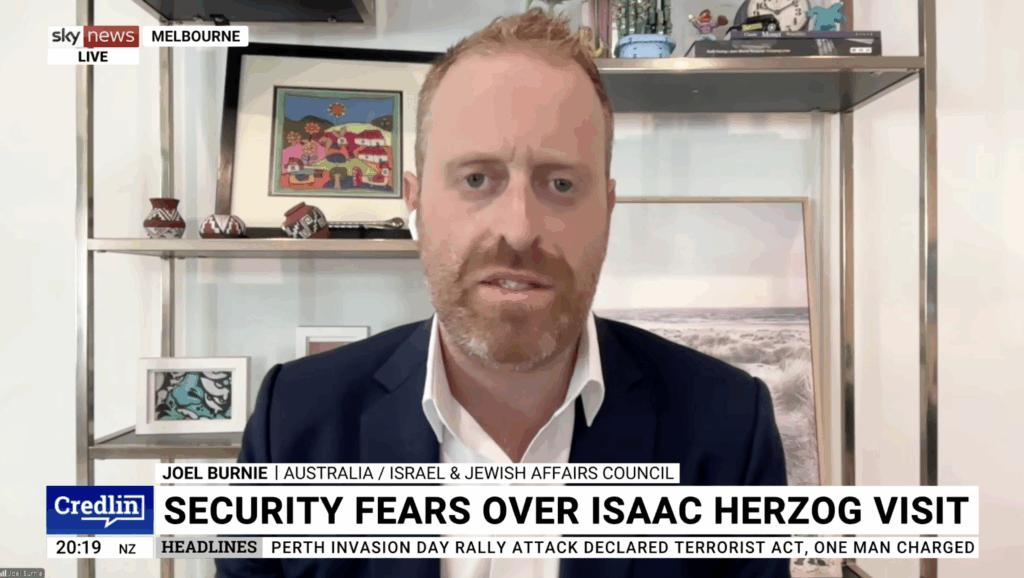UPDATES
New Palestinian Authority PM Rami Hamdallah
June 6, 2013
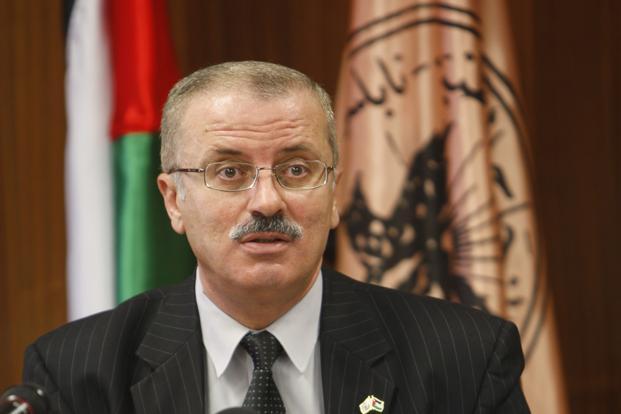
Update from AIJAC
June 6, 2013
Number 06/13 #01
This Update deals with the announcement earlier this week by Palestinian Authority (PA) President Mahmoud Abbas that the relatively unknown Rami Hamdallah, the President of al-Najah University, will be the new PA Prime Minister, succeeding internationally well-regarded economist Salam Fayyad. Fayyad resigned in April after several months of conflict with PA President Mahmoud Abbas.
First up is Washington Institute expert David Makovsky, who sees the new appointment as primarily a boost for the ruling Fatah party. After reviewing Hamdallah’s biography, he notes that Hamdallah, unlike Fayyad, is a Fatah party member, as well as an individual with no outside base of support, making him likely to be heavily reliant on the office of President Abbas, and unlikely to operate as an independent actor. Makovsky urges that the international community judge Hamdallah by the extent to which he continues Fayyad’s policies of budget transparency, pro-growth economic strategies, and security cooperation with Israel. For all of Makovsky’s analysis, CLICK HERE.
Next up is veteran Israeli Arab journalist specialising in Palestinian Affairs Khaled Abu Toameh, discussing Abbas’s motivation for picking Hamdallah. He agrees with Makovsky that Abbas appears to have picked someone intended to serve as a “loyal and dutiful servant of Abbas and Fatah leaders”, and possibly allow Fatah access to PA funds that Fayyad’s transparency had kept out of their hands. He also argues that this appointment will have no effect one way or another on the peace process or Palestinian security policy, but also that it means that Abbas is treating the PA as his private fiefdom, despite have now exceeded his term in office by four years. For Abu Toameh’s pessimistic argument in full, CLICK HERE. Another good look at how the Hamdallah appointment fits into the PA division of power comes from American expert Jonathan Schanzer.
Finally, the always insightful Prof. Barry Rubin tries to place the Hamdallah appointment in the context of the overall PA stance on the peace process. He notes that there has actually been a move toward hardliners in Fatah since the 2009 party elections, and that the dominance of Fatah means that the post of PA Prime Minister – a new post pushed by the US in 2003 to hopefully advance peace negotiations – had not been effective in achieving this result. Rubin remains sceptical that the PA is prepared to move toward peace with Israel, while stressing that it continues to serve a purpose by preventing a Hamas takeover. For the rest of what Rubin has to say, CLICK HERE.
Readers may also be interested in:
- We’ll have more on the situation in Turkey in subsequent Updates and blog posts, but in the meantime, we recommend, as a starting point for understanding what is happening there: an analysis from Istanbul-based journalist Claire Berlinski; this well-informed piece by a number of authors from Der Spiegel; Washington Institute Turkey expert Soner Cagaptay; Turkish journalist Mustafa Akyol; academic Michael Rubin plus a look at the reality of Turkish democracy from Stephen Cook and Michael Koplow. And for an Israeli perspective, this editorial from the Jerusalem Post.
- A good overall evaluation of recent efforts to kickstart peace talks by US Secretary of State John Kerry comes from Israeli journalist and blogger Shmuel Rosner.
- David Horovitz of the Times of Israel argues that US Secretary of State John Kerry’s efforts to use $4 billion in economic aid to the Palestinians to kickstart peace talks are unlikely to succeed. Plus, some historical context on the Palestinian economy from American analyst Shoshana Bryen, while Israel academics Ephraim Lavie and Yitzhak Gal offered a detailed – and rather bleak – portrait of the overall state of the Palestinian economy and treasury.
- Former Clinton-era US Middle East mediator Aaron David Miller argues that Kerry’s Mideast efforts can actually make things worse if they don’t succeed – as they seem unlikely to do. Plus, Israeli columnist Evelyn Gordon takes on those who continue to insist that solving the Israel-Arab conflict should be the more important priority in international politics. Plus,
- Two good comments on the conviction in Cairo of 43 NGO workers – convictions essentially for the heinous crime of trying to promote democracy in Egypt – from Washington Institute expert on Egypt Eric Trager and former American official Elliot Abrams.
- Former AIJAC analysts Arsen Ostrovsky interviews Zubin Mehta, conductor of the Israel Philharmonic Orchestra, about the state of Israeli culture.
- Isi Leibler writes about why he believes that current talk about a renewed peace process is inconsistent with what is happening on the ground, and once more comments on the scandal surrounding financial malfeasance at the Holocaust Claims Conference.
- Some examples from the many stories and comments now appearing at AIJAC’s daily “Fresh AIR” blog:
- Ahron Shapiro on the increasing threat to Middle Eastern peacekeepers – and especially the Australian troops assigned to the Multilateral Force and Observers in the Sinai.
- Daniel Meyerowitz-Katz posts on some Australian Greens who get it right on antisemitism and the London Declaration.
- Sharyn Mittelman explains why Australian Foreign Minister Bob Carr’s efforts to raise the profile of the dangerous plight of Middle Eastern Christians are positive and important
- Or Avi-Guy takes on yet another ill-informed argument that the Middle East impasse is “all because of the settlements.”
- Allon Lee’s latest “Media Week” column.
NEW PALESTINIAN PRIME MINISTER IS A VICTORY FOR FATAH
By David Makovsky
PolicyWatch 2084, June 4, 2013
Abbas’s chosen candidate will boost Fatah’s profile in the near term, but international donors will ultimately judge the new premier based on how he handles fiscal transparency, economic stewardship, and security cooperation.
This week, Palestinian Authority president Mahmoud Abbas appointed academic Rami Hamdallah as prime minister, replacing internationally respected economist Salam Fayyad, who resigned in April. As a political outsider, Hamdallah lacks Fayyad’s independent power base, so Abbas and the ruling Fatah Party will likely have greater control over his activities. Yet his low profile could also help him pursue his predecessor’s economic and security initiatives with fewer political impediments.
FATAH VICTORY
Born in the West Bank city of Tulkarem in 1958, Hamdallah has served as president of al-Najah National University in Nablus since 1998. A linguist, he received his doctorate from Britain’s University of Lancaster. Until now, he has not been involved in PA political life, though he once headed the Palestinian stock exchange and has served as secretary-general of the PA Central Elections Commission since 2005.
Abbas seemingly chose him because of his clean slate in the political arena. As an outsider, Hamdallah does not have political enemies, but he also lacks his own power base, making him unlikely to pursue a course independent from the president. Accordingly, his appointment appears to be a victory for Abbas’s mainstream Fatah Party, which had been troubled by Fayyad’s increasing independence and its implications for post-Abbas succession.
Like Hamdallah, Fayyad was deemed a technocrat upon taking the job in 2007. Yet his fourteen years at the International Monetary Fund had made him very well connected internationally, and his previous tenure as PA finance minister had further enhanced his reputation as an economic reformer. Since then, Fayyad has publicly indicated that he will run for president in the next election. Now that he is freed from his caretaker role as outgoing prime minister, one can imagine him becoming more vocal in calling for new elections.
Appointing someone who lacks Fayyad’s international reputation and domestic power base suggests that Abbas and his circle will be able to consolidate their control over the premiership. At the same time, had Abbas chosen a member of the Fatah Central Committee or Revolutionary Council — someone with the potential to succeed him as president — he would likely have alienated certain players. Hamdallah lies in the middle ground: he is unlikely to oppose Fatah, and he is not associated with Hamas, so the United States and Israel cannot object to him on those grounds.
Moreover, by appointing an academic, Abbas may believe he can escape allegations of cronyism. Previously, some Western observers speculated that Abbas would name his economic aide, Muhammad Mustafa, to replace Fayyad, which they viewed as a sign of economic cronyism (though without making specific allegations against Mustafa). Now, however, Abbas reportedly plans to make Mustafa the new deputy premier, suggesting that he wants to keep a close watch on Hamdallah while sidestepping such criticism.
Although there has been no public mention of Washington vetting Hamdallah’s appointment, the timing is curious. When Fayyad resigned on April 13, Abbas did not seem in any particular hurry to name his replacement. Instead, the decision came just days after the May 26 World Economic Forum meeting in Jordan, where Secretary of State John Kerry announced — with Abbas at his side — that the United States would spearhead a $4 billion economic development plan for West Bank Palestinians.
NO FATAH-HAMAS RECONCILIATION
In 2011, Abbas committed to jointly appoint a new prime minister as part of a tentative reconciliation agreement with Hamas. And when the parties reaffirmed their desire for reconciliation last year, they indicated that Abbas himself would be the next premier. Yet despite two years of talks, negotiations between Fatah and Hamas have floundered, and Hamdallah’s appointment indicates that reconciliation will not happen anytime soon.
Indeed, far from jointly approving the decision, Hamas came out against it. Group spokesman Fawzi Barhoum argued that “Abbas should have implemented the reconciliation [deal],” calling the president’s unilateral decision to elevate Hamdallah “illegal.” Yet Hamas can hardly blame Hamdallah for paralysis on the reconciliation front. In February 2013, the Central Elections Commission — under Hamdallah’s leadership — established 257 voter registration locations in Gaza to help jumpstart national elections, which have not been held since the 2006 parliamentary contest.
TESTS AHEAD FOR HAMDALLAH
Going forward, international donors will be focusing on the new prime minister’s progress in three main spheres: budgetary transparency, stewardship of the economy, and continued security cooperation with Israel. On the first item, a key test for Hamdallah will be whether he keeps the PA budgetary process open, which was Fayyad’s signature approach to improving the quality of governance. By placing the PA’s main account under international audit, Fayyad made it virtually impossible to divert aid. If Hamdallah takes a different course, Europe and Washington are bound to reduce their contributions.
Fayyad also discovered that the ebb and flow of peace negotiations affected his efforts to stabilize and professionalize the budget. Abbas’s unilateral statehood bids at the UN in 2011 and 2012 disrupted both American aid and Israel’s transfer of tax revenue collected on behalf of the Palestinians. As a result, the PA had to withhold monthly salaries from 150,000 of its employees, and the Fatah leadership scapegoated Fayyad despite his strong opposition to Abbas’s UN campaign.
Economic stewardship is another key issue. Thanks in no small part to Fayyad’s strategy of attacking deficits and focusing on infrastructure projects, gross domestic product in the West Bank was growing at a rate of 11 percent in 2010-2011, according to the Ad Hoc Liaison Committee, which coordinates donor assistance. Yet this figure dropped to 6 percent in 2012, while the deficit grew and unemployment increased, especially among the younger population. Although U.S. assistance has since been reestablished and Israel has resumed delivering tax revenues, it remains unclear how Hamdallah will restore economic growth to previous levels. In particular, it will be interesting to see whether he can repeat the regional fundraising success he has enjoyed as a university administrator, where he has reportedly raised $300 million largely from Arab countries.
As for security cooperation with Israel, Fayyad was known for his commitment to such activities as a means of improving law and order inside the West Bank. Specifically, he focused on consolidating security services, institutionalizing cooperation with Israeli services, and pursuing Hamas operatives involved in the West Bank terrorist infrastructure. Abbas favored such cooperation as well, but he often traveled abroad, leaving management of the issue to Fayyad and relevant officials. Although Israeli-Palestinian security contacts are now routine and may not require the same level of intervention as in Fayyad’s early days, observers nevertheless wonder if Hamdallah’s commitment will match his predecessor’s.
There are grounds for optimism in this regard. Although al-Najah University produced its share of suicide bombers during the second intifada (2000-2004), Hamdallah publicly and unequivocally condemned such attacks, stating, “The majority of students and teachers at this institution are against the killing of any human beings. It’s something horrible to kill innocent children, whether in Palestine or in Israel or anywhere else.” At the time, he blamed the growing radicalization on the lack of progress toward peace.
CONCLUSION
Abbas has seemingly found a prime minister who will act in accordance with the president’s office. That notion, coupled with Hamdallah’s lack of political enemies, may help the new premier hold the position. Although Hamdallah does not expect to maintain Fayyad’s sense of independence, donors will no doubt judge him based on the fiscal, economic, and security standards set by his predecessor. These standards are easily measurable, so the international community should know shortly whether the new appointment marks a continuation or abandonment of the Fayyad path.
David Makovsky is the Ziegler distinguished fellow and director of the Project on the Middle East Peace Process at The Washington Institute.
————————————————————————
Why Abbas Chose This Prime Minister
The appointment of Palestinian academic Rami Hamdallah as Palestinian Authority Prime Minister is a big victory for Mahmoud Abbas and his Fatah faction.
Hamdallah, who had served as president of An-Najah University since 1998, has been chosen by Abbas to replace Prime Minister Salam Fayyad, who decided to quit in April following years of tensions and disagreements with the Palestinian Authority president and Fatah.
Abbas and Fatah want a weak prime minister who would never pose a threat to their hegemony over the Palestinian issue.
Until last week, many Palestinians were convinced that Abbas would be forced by the US Administration and the Europeans to keep Fayyad in office.
Western donors even threatened to suspend financial aid to the Palestinian Authority if Abbas insisted on removing Fayyad.
But in the end Abbas and Fatah got exactly what they wanted. Not only did they manage to get rid of Fayyad, but the man who has been chosen to replace him will be less problematic than Fayyad.
For Abbas and Fatah, Fayyad, a widely respected economist, posed a real problem and threat. As long as Fayyad was prime minister, it was almost impossible for Abbas and Fatah to lay their hands on hundreds of millions of dollars of international aid.
Fayyad was not only blocking Abbas and Fatah from seizing the funds; he was also beginning to pose a political challenge to them.
Abbas and Fatah leaders in the West Bank suspected that Fayyad had political ambitions, including running one day in a presidential election.
Yet more important than getting rid of Fayyad was finding an uncharismatic and inexperienced figure who would play the role of the loyal and dutiful servant of Abbas and Fatah leaders.
If getting rid of Fayyad was a victory, the appointment of Hamdallah, a “yes man” with no political experience, is even a bigger achievement.
Abbas wanted and finally got a prime minister who will play the same role as the prime ministers of Jordan and other undemocratic Arab countries.
Unlike Fayyad, Hamdallah will now serve as the obedient and faithful servant of Abbas, as well as the Fatah and PLO leadership.
This is exactly what they have wanted — a powerless prime minister who would rubber-stamp their decisions and plans.
In this regard, Hamdallah will not be different from any official working in Abbas’s office. In fact, some Palestinians reacted jokingly to the appointment by saying that a secretary in Abbas’s office has more powers than the new prime minister.
On the political arena, the appointment of Hamdallah will have no impact whatsoever.
The PLO is the only party authorized to negotiate with Israel. PLO leaders, including Abbas, never allowed Fayyad to be part of the negotiations with Israel. Of course, they will never permit someone like Hamdallah, who has zero experience in the peace process, to be involved.
The appointment of Hamdallah does not mean anything for the peace process. Moreover, it will not bring about real changes, if any, in the Palestinian Authority’s economic and security strategies.
The appointment of Hamdallah shows that Abbas continues to act as if the Palestinian Authority is his private fiefdom. PLO leaders said that Abbas failed to consult with them about the appointment of the new prime minister, the same way he keeps them in the dark about many things, including U.S. Secretary of State John Kerry’s efforts to resume the peace process with Israel.
If anything, the appointment of Hamdallah serves to reinforce his status as an unelected dictator whose only goal is to remain in power for as long as possible.
Back to Top
————————————————————————
Palestinian Authority Finds Perfect Prime Minister
By Barry Rubin
Pajamas Media, June 3
The Palestinian Authority (PA) leader Mahmoud Abbas has appointed a new prime minister. He is Rami Hamdullah.
Who?
It is useful to remember that the post of PA prime minister was originally forced on PLO, PA, and Fatah leader Yasir Arafat ten years ago in the hope of getting the PA to be more moderate and more competent as an economic and administrative entity. It has not worked too well.
But once you think about it, Hamdullah is the perfect PA prime minister. His predecessor was Salam Fayyad. Fayyad, named six years ago, was a serious economist who actually tried to curb the ruling Fatah party’s corruption. The Western donors liked Fayyad and kept him in office for years against the will of the Fatah bosses, who periodically tried to get rid of him. They feared that if they forced out Fayyad, the money would be cut off. At any rate, they blocked all of Fayyad’s reform measures and he never played any significant role in negotiations with Israel.
The Fatah bosses run the PA’s broad policy. Of the 18 members elected in 2009 they are mainly hardliners, either radicals or old Arafat loyalists. After the election, a moderate, Ahmad Qurei (better known as Abu Ala), who missed out on election by two votes said, albeit with exaggeration, that the Fatah elections were more dishonest than the recent ones in Iran.
But even he, perhaps the most moderate individual in the higher ranks of the organization, showed the culture of Fatah by accusing Israel of fixing the election and those who won as being Israeli agents! So the arguably most moderate leading figure claimed that Israel conspired to control the election by picking hardliners. This tells you part of the problem
The victory of people like Jibril Rajoub, Muhammad Dahlan, and Tawik Tirawi—all security force commanders—showed, he claimed that “someone wants to see rubber stamps” in Fatah’s leadership. He implied that these people were too soft on Israel and were actually willing to make concessions as part of a comprehensive peace agreement. Of course, such a comprehensive agreement has not appeared in the last four years and is nowhere in sight.
No need to wonder why this conflict continues when you look at thinking and behavior like this.
At the same time, Gaza Strip leaders of Fatah have resigned. Even aside from vote-fixing they do have a case. After all, since Hamas prevented many from attending the meeting they couldn’t vote for candidates from Gaza.
And there is still more. Who beat Abu Ala for the position on the Fatah Central Committee? Tayyib Abd al-Rahman. He was for many years the head of Arafat’s personal public relations’ operation. I remember him well from the 1980s running Arafat’s press conferences. So much for new leadership.
Now, however, it is a sign of the contempt that the Fatah bosses feel toward President Barack Obama, as someone too powerless or unwilling to pressure them. In fact, it is a sign of their low respect that the replacement of Fayyad comes only a few days after Secretary of State John Kerry offered them a fund of $4 billion of the PA went back to negotiations with Israel. The PA refused.
According to the theory that the PA really wants a two-state diplomatic solution with Israel, this makes no sense. Doesn’t it want to compromise to end “oppression” and ”occupation” as soon as possible? No, unfortunately they would rather wait decades in hopes of wiping Israel off the map, or leaving the issue open for the next generation, or fear that compromise would mean their being called traitors and pushed out by their Islamist rival, Hamas.
Hamdullah is sort of the perfect compromise. He is a nobody, a technocrat, lacking all political experience so he won’t try to challenge the party bosses and cannot do so. Hamdullah will do what he is told.
But also Hamdullah, dean at al-Najah University, is a Fatah party member (plus 1), is British-educated (plus 2), and an English professor (plus 3). In other words, he knows how to deal with the West and will hopefully keep the money rolling in but cannot do anything and won’t try.
Hamdullah cannot negotiate even if he wanted to do so. He will ignore Western encouragements to return to the bargaining table but will keep accepting the checks and provide the PA with a moderate face that will gain public relations’ points with his British-accented English.
Long forgotten was the late Bush and early Obama Administration strategy. The idea was that with the PA’s cooperation, the West Bank would be turned into a relatively successful entity while heavy pressure would be put on the Hamas regime in the Gaza Strip. Palestinians would allegedly see the difference, support the PA and not Hamas, a wave of moderation would start, and a compromise peace result with Israel.
Today, however, Hamas survives, is entrenching itself, and now has–despite serious frictions between them–a patron in the advancing Muslim Brotherhood movement. The PA is still a mess, with aid having a bigger chance of ending up in the PA leaders’ Swiss bank accounts than in building a stable economy.
Meanwhile, we will all wait for a year or two or three to see who Abbas’s successor will be. Abbas has long passed the end of his elected term without anyone in the West pointing out that his government is no longer legitimate. His desire to become partners again with terrorist Hamas gets a pass as does the fact that the PA has now rejected the Oslo Accords of 1993 with Israel on which its own existence is based.
Yet corrupt, incompetent, and hardline as it is the PA serves a purpose. It preserves the fiction that the “peace process” is still alive and keeps Hamas out of power.
Of course, on the positive side, it also keeps Hamas from overthrowing the PA–which means the West Bank, since Hamas already controls the Gaza Strip–out of the hands of the revolutionary Islamists who would use it to launch an immediate war on Israel backed by the other Muslim Brotherhood regimes.
That in itself is worthwhile given the fact that there is zero alternative of a moderate Palestinian leadership that would make peace with Israel. Of course, the PA has no interest in doing what is necessary to actually obtain a Palestinian state.
Tags: Palestinians


